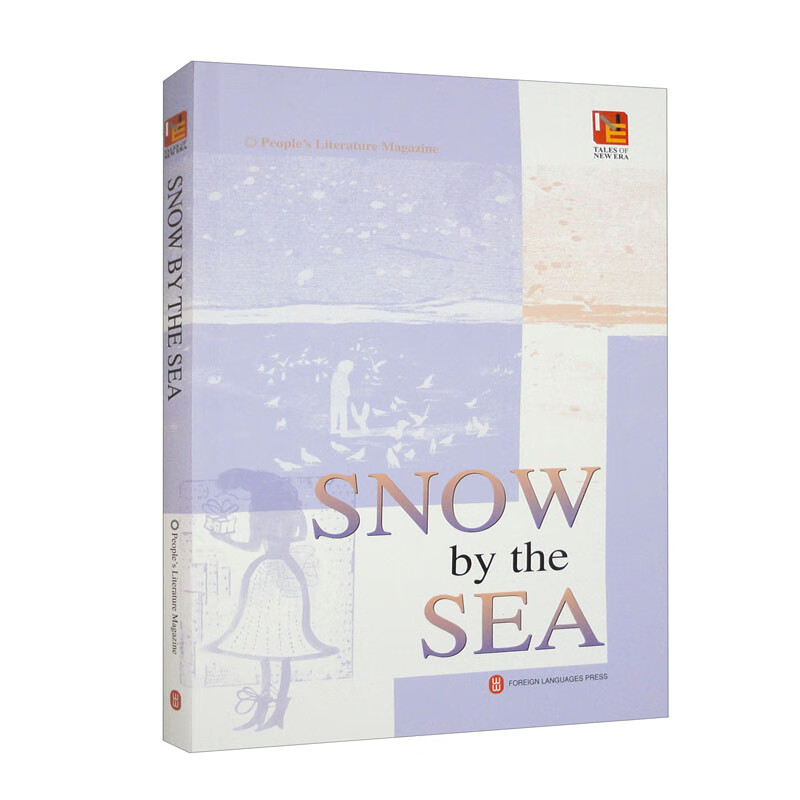- ISBN:9787119131887
- 装帧:一般胶版纸
- 册数:暂无
- 重量:暂无
- 开本:16开
- 页数:277
- 出版时间:2023-01-01
- 条形码:9787119131887 ; 978-7-119-13188-7
本书特色
★The complex components of our lives-the daily rhythms, livelihoods, relationships, emotions, challenges, hopes-that constitute the core and the context of existence are transformed into story and the storytelling process: the concrete reality of modern life in China, or modern Chinese life. Even more important is the wisdom and honesty with which Chinese writers turn all this into literary narrative; this \"Tales of New Era\" anthology will bring you into the heart of it. ——Shi Zhanjun
内容简介
“新时代纪事”是《人民文学》杂志开设于2012年的一个栏目,该栏目以人民福祉为重心、以国家富强为底气、以向好向优为方位,用文学作品表现十八大以来新时代建设成就。现以该栏目名为丛书名,精选发表于该栏目里的作品,翻译成英、法、德、西、意、俄、韩等7个语种向世界各国读者介绍近年来发表的中国文学作品,以文学的方式,向世界读者讲述“中国故事”,抒写人民的奋斗精神和获得感,展现新时代“真实、立体、全面的中国”。“新时代纪事”多语种丛书英文版**辑选取了阿来《三只虫草》、苏童《万用表》、铁凝《玫瑰门》(节选)、王晋康《失去的瑰宝》、刘慈欣《2018年4月1日》、蒋韵《红色娘子军》、张炜《海边的雪》等作家作品。
目录
Alai Three Grassworms 4
Su Tong The Multimeter 98
Tie Ning Meimei Had Never Seen the Mountains 132
Wang Jinkang The Lost Treasure 146
Wu Yan September Sunshine 164
Jiang Yun The Red Detachment of Women 174
Zhang Wei Snow by the Sea 194
Wei Wei Dressing Up 224
Xiao Fuxing Late Osmanthus 258
Translators 274
节选
《海边的雪(英文)》: Fifteen of them! Four hundred and fifty kuai! Rather than climbing any more hills, Sangay went striding along the road. The sunlight was intense, sparkling in the stream beside the road and in the ice melting in the bogs. As the thaw of the grasslands picked up pace, the smell of the dark earth grew stronger and stronger. Some yaks were leaning over bare rocks, licking at the salts that were starting to ooze out. After walking for more than twenty li, he arrived home. A new village. A new village that had been built as part of the herder resettlement programme. Every house identical. A door in front, with a window on either side, revealing that the house had three rooms. Then, to the left or to the right, the house turned a corner to reveal another room. There were twenty-six of these houses in total, maybe twenty-seven, and together they comprised a new village. Under the "Returning Grazing Lands to Grasslands" initiative, intended to preserve the waterhead of the Yangtze and Yellow rivers, everyone was either completely banned from herding or restricted to a tiny fraction of their herds. Sangay's father had said: "It's no different from living in a city." Sangay disagreed, but he hadn't argued the point. A collection of fewer than thirty households-how could that count as living in a city? The government seat, where Sangay went to study, had toilets, a school, a mechanic's, an internet cafe, three noodle restaurants, one Tibetan restaurant, one Sichuan restaurant, a hairdresser's, a supermarket, and a temple. And that was just a small town, not a city. Even living there was hardly "no different from living in a city." They had no rubbery running track, no middle school with a library, no cinema, no plaza, no big hotels, no flyovers, no gangsters occupying the streets like you saw in movies, no traffic lights or traffic cops-how could it possibly count as a city? These people in their new settlement just hung around all day, dumb and devoid of purpose, with nothing to keep them busy except reciting the occasional mantra. At least until the north wind retreated and the warming south-west wind returned, waking the land, thawing the ice, and heralding the arrival of grassworm season. It was only then that people were able to wake from their nightmare. Sangay didn't want to dispel his father's illusion. Only in his head could he reply: hanging around here, getting by on a measly government subsidy, was very different from living in a city. Even though every household had a satellite dish installed on the roof that could receive a local TV broadcast translated into Tibetan, Sangay's mother and father sat down every right to drink their tea and watch the stories of the Chinese city dwellers whose language they didn't understand. Afterwards they'd lie down, wrap themselves up in their quilts, and exchange commentaries. His mother's question was this: "Those folk eat well and dress well and don't have to work-so why is it they're so stressed, tired, and unhappy?" When Sangay heard this kind of talk he'd think to himself: because you don't live in the city, and you don't understand what life is like for city folk. ……
作者简介
Overseen by the China Writers Association, People's Literature Magazine is the People's Republic of China's first national literary magazine. For more than seventy years it has contributed greatly to the promotion and prosperous development of literature in China, and has been an essential journal of modern Chinese literature for foreign Sinological institutions and libraries alike.
-

安徒生童话精选
¥12.0¥40.0 -

地心游记(纯英文)/床头灯英语.3000词读物
¥5.7¥15.8 -

Sons and Lovers
¥8.1¥26.0 -

小妇人(纯英文)/床头灯英语.3000词读物
¥4.7¥15.8 -

你往何处去
¥11.2¥33.0 -

流浪地球刘慈欣
¥16.7¥62.0 -

了不起的盖茨比(纯英文)/床头灯英语.3000词读物
¥4.2¥12.8 -

茶花女
¥3.7¥12.0 -

方法论
¥3.3¥9.5 -

本杰明:富兰克林自传
¥4.2¥13.5 -

企鹅口袋书系列·伟大的思想20:论自然选择(英汉双语)
¥6.3¥14.0 -

命案目睹记
¥14.5¥33.8 -

城堡
¥12.0¥26.0 -

巴黎圣母院
¥4.7¥15.5 -

THE GREAT GATSBY-了不起的盖茨比
¥5.0¥16.8 -

最新英汉百科图解词典-升级版
¥131.0¥168.0 -

沉思录
¥9.7¥21.0 -

英诗选译-孙大雨译文集-(英汉对照)
¥14.0¥36.0 -

考研英语背单词20个词根词缀
¥1.2¥3.2 -

赖世雄的英语学习法
¥14.0¥45.0













